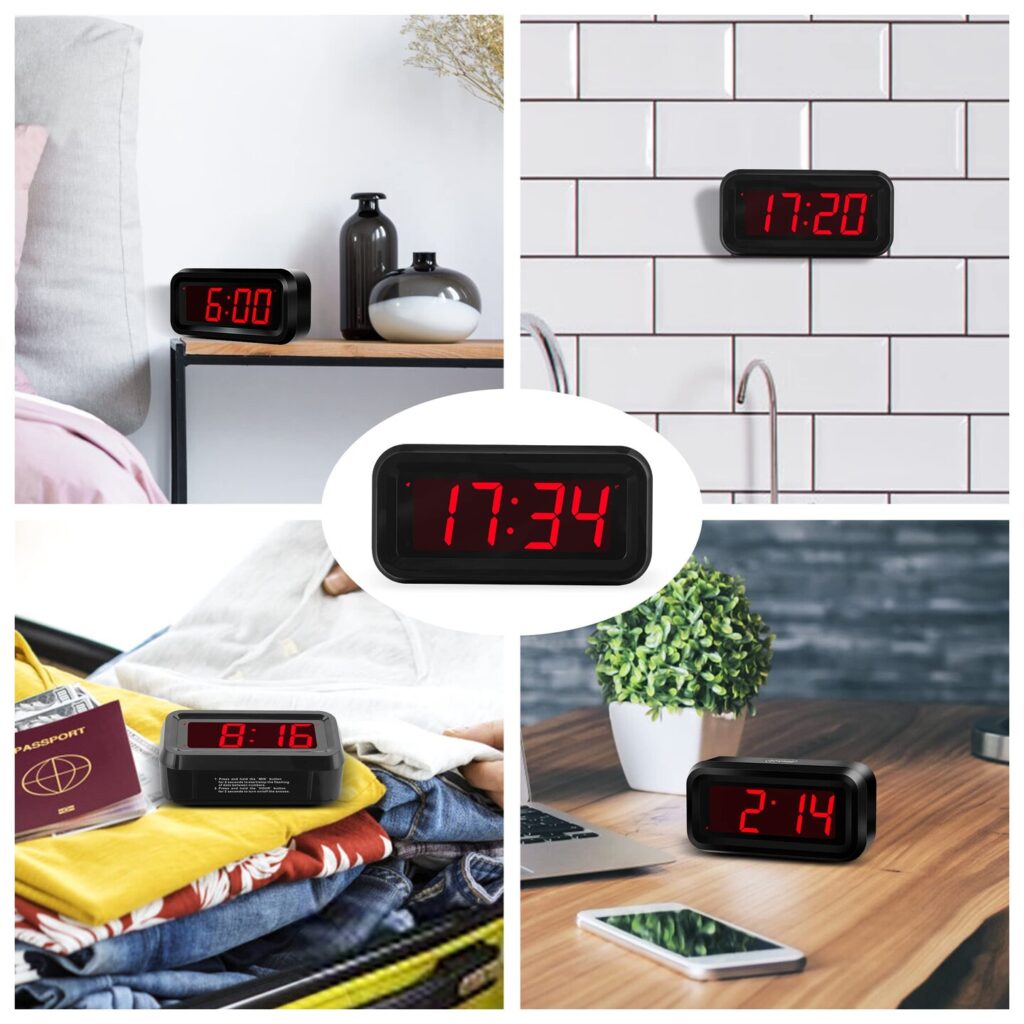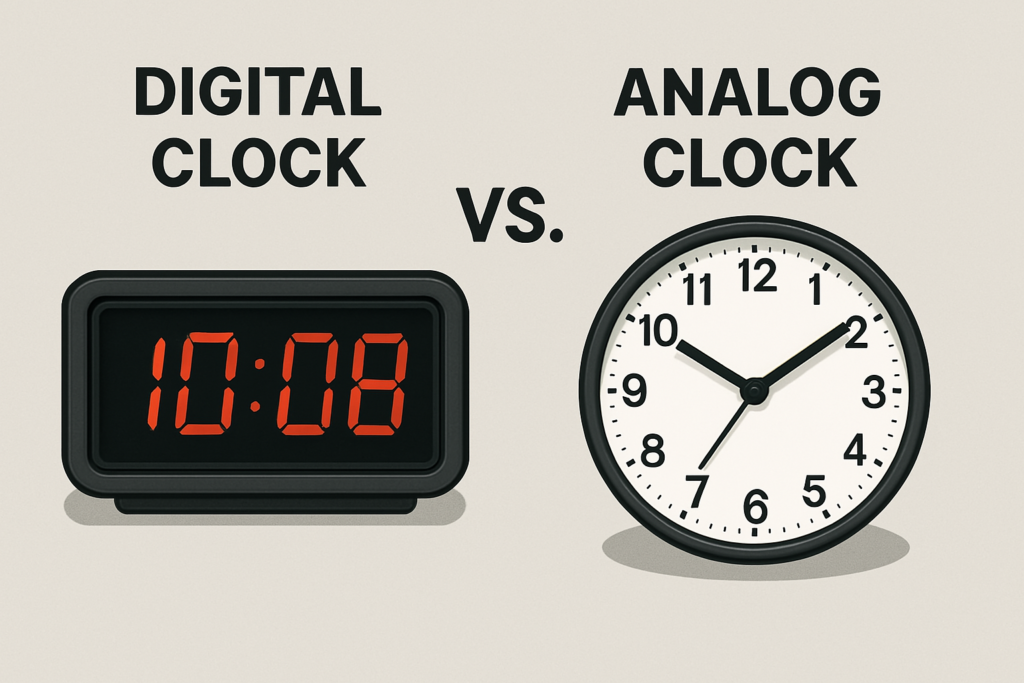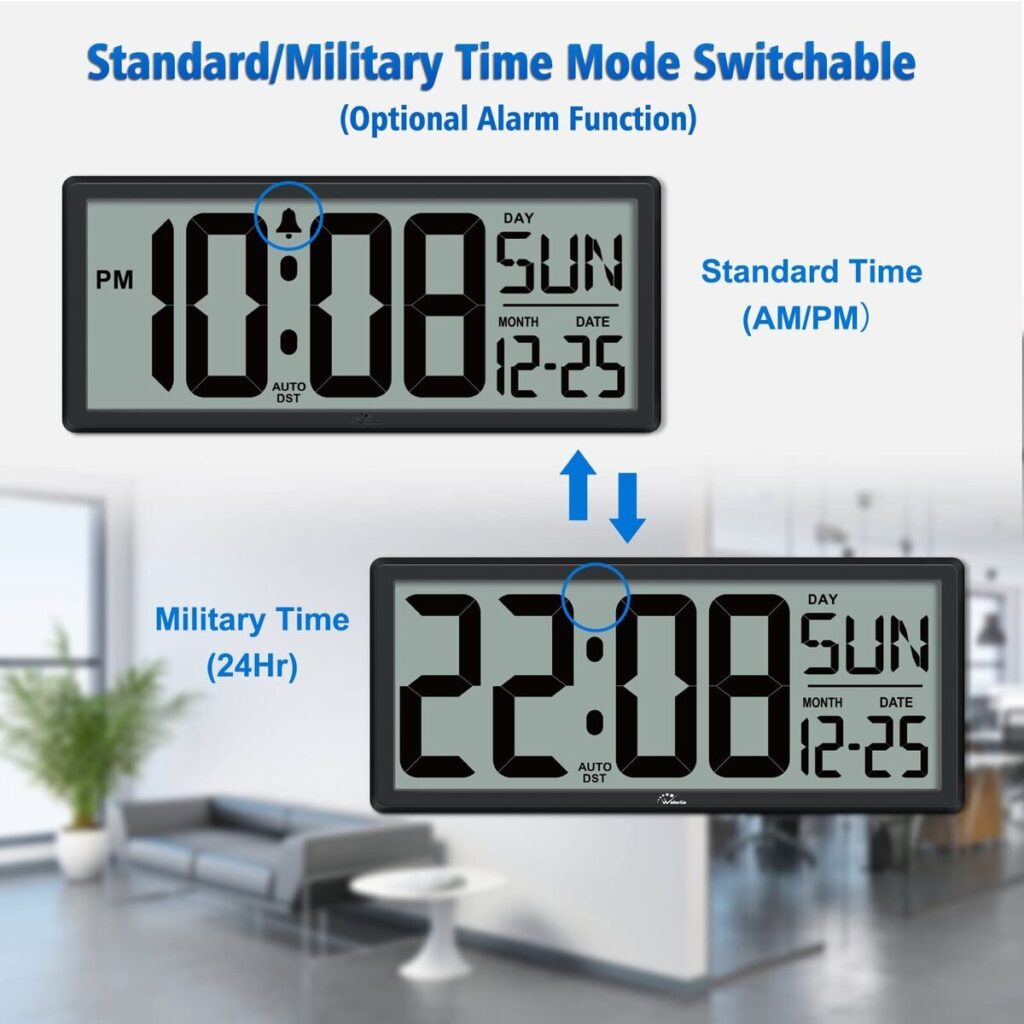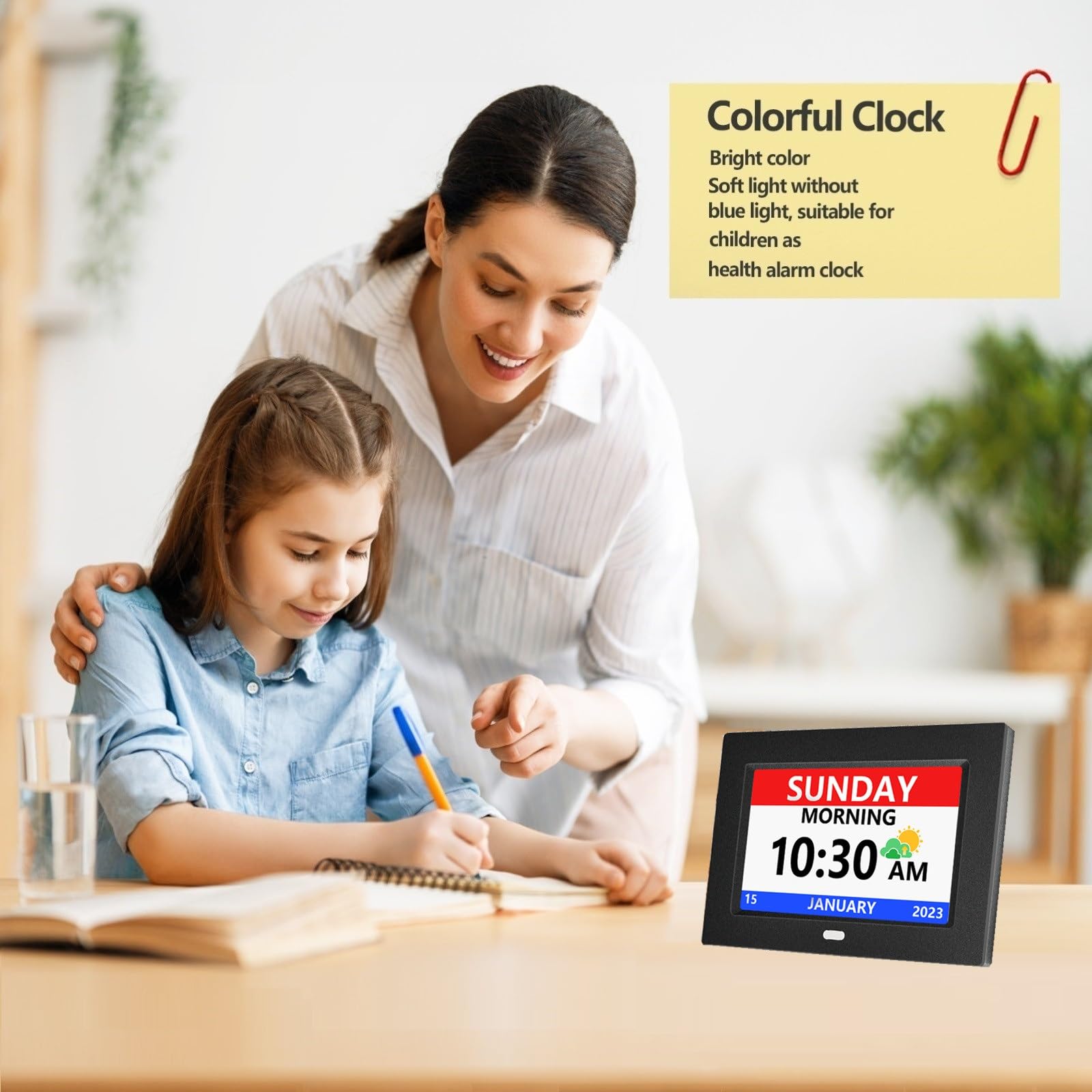In today’s fast-paced world, staying punctual isn’t just a matter of convenience—it’s essential. Whether you’re managing your day at work, helping your kids get ready for school, or timing an important event, a digital clock plays a vital role. These modern timepieces have revolutionized how people track, display, and interact with time. From simple bedside alarms to highly sophisticated global time zone displays, the digital clock has become a part of our everyday routines. This guide explores the expansive landscape of digital clocks, diving deep into their features, types, designs, and functionality, helping users choose the best option based on their needs and preferences.

What is a Digital Clock?
A digital clock is a modern timekeeping device that displays the current time using numeric digits rather than the hands and dials found on analog clocks. In addition to showing hours and minutes, many models also display seconds, the date, temperature, and even humidity. Their intuitive design makes them a popular choice in homes, offices, educational institutions, and public areas around the globe.

Digital Clock vs. Analog Clock
When comparing a digital clock to an analog clock, it comes down to a balance between aesthetics and functionality.However, digital clocks provide an unmatched level of accuracy, ease of use, and added features. The clean presentation and multifunctional nature of digital clocks make them an essential part of the modern lifestyle.

Popular Types of Digital Clocks
1. Digital Calendar Day Clocks
Digital calendar day clocks are particularly helpful for seniors, individuals with dementia, or anyone who prefers a clear, detailed time display. These clocks go beyond the basics by providing the full day of the week, date, month, and year—often in large, bold letters that are easy to read from across a room. Their utility in assisted living environments, hospitals, and home care settings cannot be overstated, as they help minimize confusion and improve the quality of daily living. The digital calendar day clock manual ensures users or caregivers can easily configure the settings, adjust display brightness, and program reminders. In some models, alarms can be set to signal medication times, appointments, or daily routines, reinforcing structure and autonomy for the user.
2. Children’s Digital Clock
Introducing time-telling to children can be fun and educational with a children’s digital clock. These clocks are specifically designed with young users in mind, often incorporating bright colors, interactive features, and characters that make them appealing and engaging. For instance, the smart unicorn clock and digital cat clock offer both charm and learning value, doubling as night lights or alarm clocks that support healthy routines. Parents can use these clocks to help children understand the concept of time, establish schedules for homework, bedtime, and meals, and even offer rewards for timeliness.
3. Digital Outdoor Clocks
Designed for resilience and clarity, digital outdoor clocks are built to thrive in external environments where both durability and readability are essential. These clocks are commonly installed in schoolyards, sports complexes, transportation hubs, and factory grounds.
4. Military Time Digital Clocks
Precision is key in certain professions, and that’s where military time digital clocks shine. These clocks use the 24-hour format, also known as military time, which removes any confusion between AM and PM. This is crucial in fields such as healthcare, aviation, transportation, and defense.

Benefits of Digital Clocks
Digital clocks offer a range of practical benefits that make them an ideal choice for various applications. Their simplicity, clarity, and technological features cater to different needs across multiple environments. Let’s explore the key advantages of digital clocks:
1. Easy-to-Read Displays of Digital Clock
One of the primary advantages of a smart clock is its clear, numerical display. Unlike analog clocks, which require the interpretation of moving hands, digital clocks show the time in easily understandable digits.
For example, the smart calendar day clock and children’s smart clock feature large, high-contrast displays that make reading effortless. The digits are displayed in bold numbers, helping to avoid confusion and offering the utmost clarity at a glance.
2. Multifunctional Capabilities of Digital Clock
In addition to displaying time, digital clocks often come with a range of additional features that make them multifunctional devices. Many models include date and temperature displays, alarms, and even features like wireless charging. .
Clocks such as the smart military time clock are designed to cater to specialized timekeeping needs, while options like the digital wall clock with calendar serve as multi-purpose timepieces that are useful in both professional and home settings.
3. Precision and Accuracy of Digital Clock
Smart clocks, particularly models such as atomic smart wall clocks or smart clocks with 10MHz clock input, offer unparalleled accuracy. These clocks automatically sync with atomic time signals or other precision time sources, ensuring that the time displayed is always correct to the second.
The precision of atomic wall clock digital models ensures that users never need to manually set the time or worry about inaccuracies. The consistency these clocks provide is one of the main reasons they are favored in environments that demand perfect time synchronization.
4. Customization and Aesthetic Appeal of Digital Clock
Digital clocks come in a variety of designs, from sleek, minimalist versions to more decorative models that add a touch of personality to any space. For example, custom smart clocks allow users to personalize their clock with specific colors, fonts, and even logos. These clocks can be tailored to fit seamlessly into both home and office environments.
5. Ideal for Time Management for Digital Clock
For people who rely on strict time management—whether it’s students, professionals, or athletes—digital clocks offer an excellent solution. These clocks are ideal for use in classrooms, gyms, sports events, or any environment where precise timekeeping is critical.
Digital Clocks for Specialized Needs
1. Digital Clocks for Seniors
Seniors often benefit from digital clocks, especially those with large displays and features tailored to their needs. The digital calendar day clock is particularly popular among older adults, offering both time and date information in easy-to-read formats. For seniors with memory loss, the clarity and simplicity of digital clocks can help them stay oriented throughout the day.
Some models even incorporate additional features like medication reminders, which can be incredibly helpful for elderly individuals managing multiple medications.
2. Digital Clocks for Educational Settings
In educational settings, digital clocks for schools are often used to help students learn the concept of time. These clocks are available in child-friendly designs and typically include larger digits and bright colors to capture students’ attention.

Frequently Asked Questions (FAQs)
What is digital on a clock?
A smart clock displays time using numerical digits, typically on an LED or LCD screen, making it easy to read compared to traditional analog clocks.
What is the ADHD-friendly Digital clock?
An ADHD-friendly clock helps individuals with ADHD manage time through features like large displays, visual countdowns, and multiple alarms to enhance focus and task management.
Which type of Digital Clock is best?
The best clock depends on your needs. Digital clocks are ideal for clear time displays, while atomic clocks offer precise synchronization. Digital calendar day clocks are great for those needing large, easy-to-read formats.
When was the digital clock invented?
The first digital clocks were invented in the 1950s and 1960s, featuring LED or tube displays, offering more precise and readable time than analog clocks.

